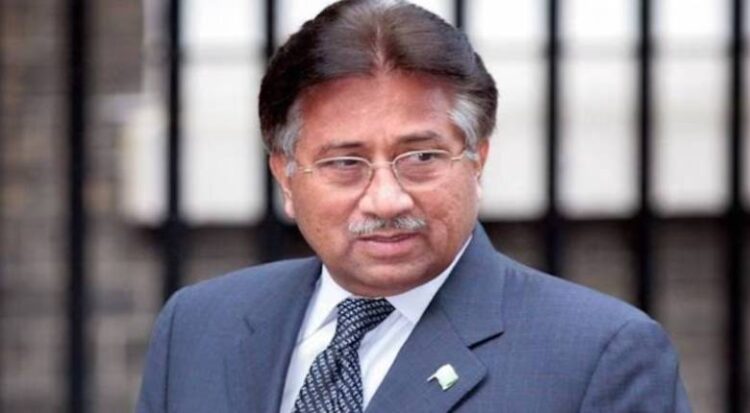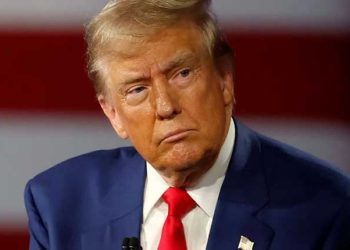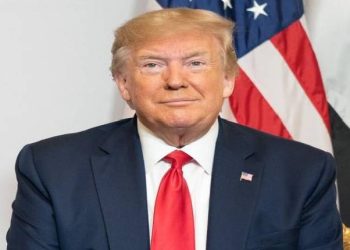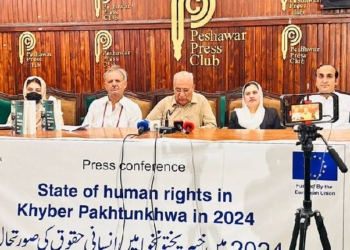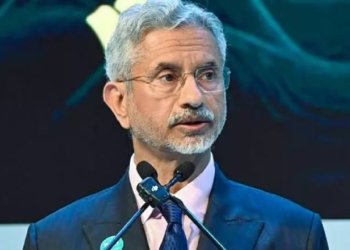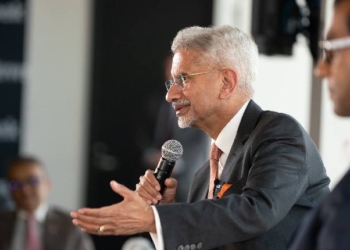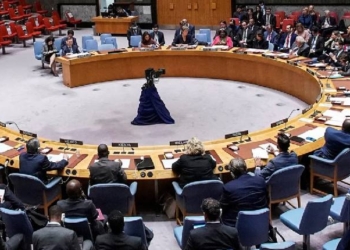Musharraf deadpanned: “I don’t know”. The audience laughed, clearly leery of the general’s lie.
Musharraf was back on Stewart’s show in June 2011, barely a few weeks after American SEALs killed bin Laden in his palatial hideout in Abbottabad in Pakistan, where the al Qaeda leader had been living among Pakistan military retirees for five years, just a few miles from Pakistan’s military academy.
Musharraf repeated the same lie, and defended it.
Though an ally of the US in the “war on terror”, as it was called back then, Musharraf, who passed away Sunday, came to be known as the originator of Pakistan’s infamous duplicity on fighting terrorism, which shot up his equity with Americans and of his country, which has still not shaken off the image of the world’s most steadfast supporter of terrorism and terrorists as tool of their foreign policy.
While Musharraf allowed the Americans the use of Pakistani territory to hunt down Al Qaeda operatives in land-locked Afghanistan, he also provided safe haven to the Taliban, who had hosted and protected Al Qaeda and scores of all kinds of terrorists from around the world.
But the disillusionment would come a little later. Though Musharraf’s support for the US war against al Qaeda was extracted out of him by officials of then President George W Bush’s administration -with the threat of the US bombing Pakistan “back into the stone age” for refusing — Bush took to him personally, calling him a “friend” and a man of “courage and vision”. Bush even invited Musharraf to presidential retreat Camp David, a perk not extended to any Indian leader yet. Some people called it the Bush-Mush relationship.
That relationship started at an intimate dinner at Waldorf Astoria in November 2001, just a few weeks after the 9/11 terrorist attacks on the US. “Musharraf was like a conquering hero, Musharraf had done the right thing,” Wendy Chamberlin, a former Ambassador to Pakistan attending the dinner, said, adding, “He was the man of the day.”
Bush, a committed promoter of democracy around the world, began souring on Musharraf over his continued assault on democracy and especially after the dictator imposed de facto rule in 2007. The US President cooled off and in a frank and honest phone call, he told Musharraf: “The United States wants you to have elections as scheduled and take your uniform off.”
In the fight against terror, Musharraf had allowed the US to use Pakistani soil to launch attacks against terrorists in Afghanistan and Pakistan. But he also allowed fleeing terrorists to take shelter across the border in Pakistan, to ride out the storm, and regroup for a possible assault at some later and safer date.
“After 9/11, then President Musharraf made a strategic shift to abandon the Taliban and support the US in the war on terror, but neither side believes the other has lived up to expectations flowing from that decision,” a 2009 US cable from then-Ambassador Anne Patterson published by WikiLeaks said, describing, as AP noted, what had become the diplomatic equivalent of a loveless marriage.
Musharraf never fully abandoned the Taliban, and over a period of time the Haqqani Network, which was described once as a lethal arm of the Taliban, came to be based in the Northern Waziristan area of Pakistan. A top US military leader once called the Haqqani Network a “veritable arm of the (Pakistani spy agency) ISI”. And most of the Taliban leadership took shelter in Quetta, Pakistan, forming a clique that was called the Quetta Shura.
“General Musharraf helped the US against Al Qaeda but not against the Taliban,” said Husain Haqqani, a former Pakistani ambassador to the US and adviser to many Pakistani leaders. “The result of that policy manifested itself in the 2021 return to power in Afghanistan of the Taliban. Still, Musharraf is viewed in Washington as a better friend of the United States than most of his relatively weak successors have proven to be.”
Musharraf clearly knew how to work Washington DC — the administration, the lawmakers, the think-tanks and, as it turned out, late night TV show hosts such as Stewart, who was probably the most clear-eyed of them all — stumping the dictator-president with the bin Laden question.
Michael Kugelman, a South Asia expert with the Wilson Center, a think tank, said: “US-Pakistan relations did enjoy a brief renaissance during the immediate post-9/11 era as the two sides worked together to apprehend A -Qaeda terrorists.
“But once it was clear that Musharraf was going to keep backing the very Taliban militants that US forces were fighting in Afghanistan, the honeymoon ended in a hurry. Relations became fraught, marked by periods of cooperation but also beset by a lot of policy disconnects and divergences of interests.
“US-Pakistan relations would get a lot worse in the early 2010s, after Musharraf was out of power, but the tensions over Pakistan’s policies toward terrorists were already coming into sharp focus when Musharraf was still at the helm.”
Both Haqqani and Kugelman underscored Musharraf’s equity within certain quarters, despite the obvious contraction in his approach towards fighting terrorism, for which Pakistan was compensated with billions of dollars.
“In later years, even after Musharraf was out of power and reduced to a bit political player, he did retain some support among folks in Washington who liked his personal warmth and charisma, and appreciated him for–at least to an extent–partnering with the US on curbing Al Qaeda terrorism,” said Kugelman, adding, “It’s also striking how well he related to private American citizens — from journalists and, of course, the Pakistan diaspora to the likes of celebrities like Jon Stewart. It’s a bit surreal, given that his country’s policies would contribute to lost American lives in Afghanistan, but it’s also a reflection of his ability to connect with Americans.”
(IANS)



